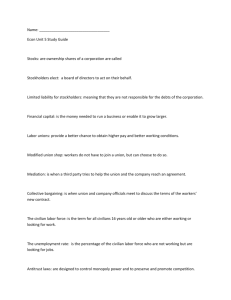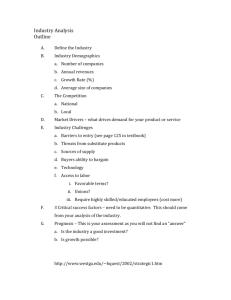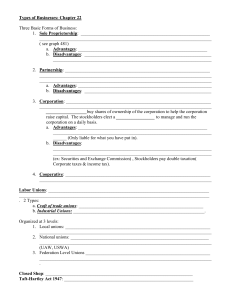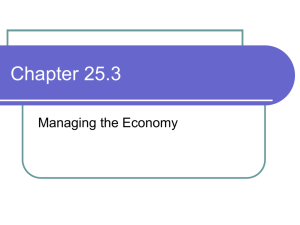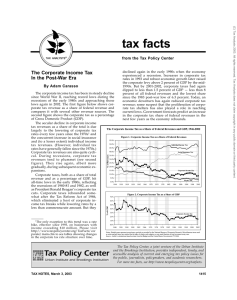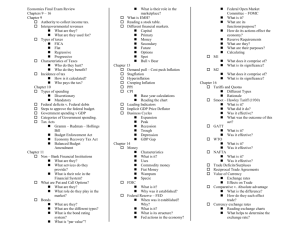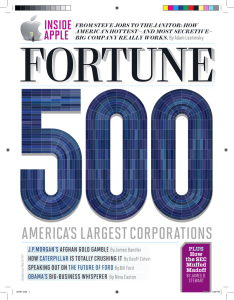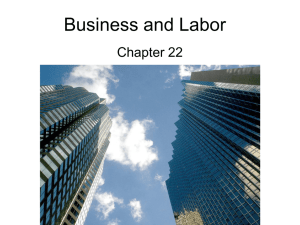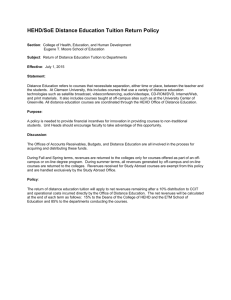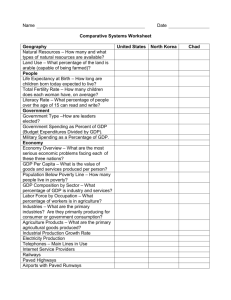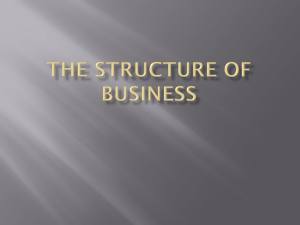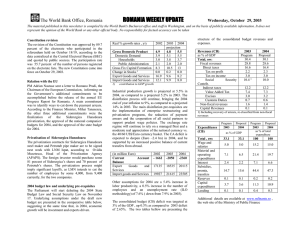Econ Unit 5 Notes - Montgomery County Schools
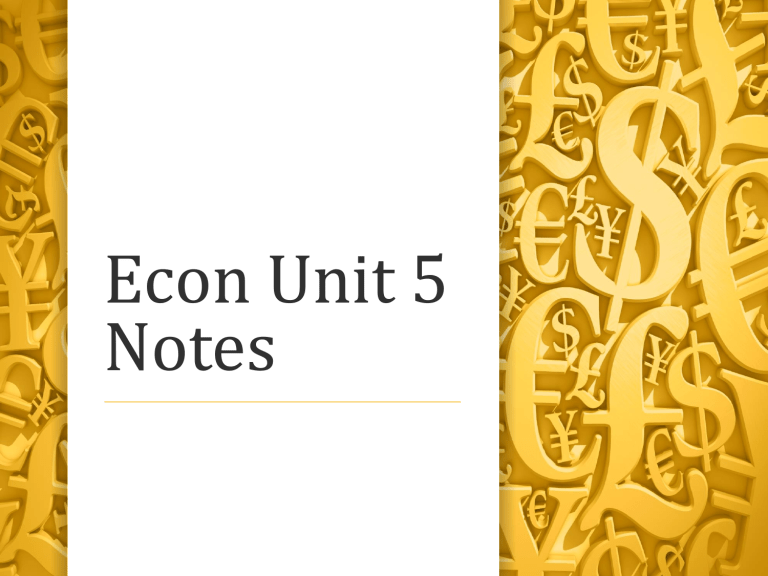
Econ Unit 5
Notes
Corporations
•
Ownership shares of a corporation are called stocks
•
Stockholders elect a board of directors to act on their behalf.
•
Stockholders have limited liability, meaning that they are not responsible for the debts of the corporation.
•
Financial capital is the money needed to run a business or enable it to grow larger.
Unions
•
Some workers join labor unions in order to have a better chance to obtain higher pay and better working conditions.
•
In a modified union shop, workers do not have to join a union, but can choose to do so.
•
Mediation is when a third party tries to help the union and the company reach an agreement.
Unions/Labor
•
Collective bargaining is when union and company officials meet to discuss the terms of the workers’ new contract.
•
The civilian labor force is the term for all civilians 16 years old or older who are either working or looking for work.
•
The unemployment rate is the percentage of the civilian labor force who are not working but are looking for jobs.
Monopolies
•
Antitrust laws are designed to control monopoly power and to preserve and promote competition.
•
A natural monopoly occurs when the costs of production are minimized by having one firm produce the product.
GDP & Money
•
The real GDP shows an economy’s production after the distortions of price increases have been removed.
•
An economic expansion occurs when real GDP goes up.
•
Inflation is a sustained increase in the general level of prices.
The Government and the Economy
•
A budget is the blueprint of how the government will raise and spend money.
•
A budget resolution is a document that totals revenues and spending for the year and sets targets for how much will be spent in various categories.
Business
•
Private goods are goods that when consumed by one individual, cannot be consumed by another.
•
When two or more companies form a single business, a merger has taken place.
•
The alternating periods of economic growth and decline make up the business cycle.
The Government & The Economy
•
When a government spends less than it receives in revenues, it has a budget surplus.
•
When a government spends more than it receives in revenues, it has a budget deficit.
•
When the governments spending equals its revenues, you have a balanced budget.
The Government and the Economy
•
The FDIC is the federal corporation that insures individual accounts in financial institutions.
•
The Federal Reserve System is our nation’s central bank.
•
A fiscal year is a 12-month period that may or may not match the calendar year.
The Government and the Economy
•
Debt is the money that has been borrowed but not yet repaid.
•
States subsidize, or pay part of the costs of, a college education for resident students.
The Government and the Economy
•
Social Security is a government program that provides money to people who are retired or disabled.
•
Payroll taxes are deducted from a worker’s paycheck to fund Social Security and Medicare.
